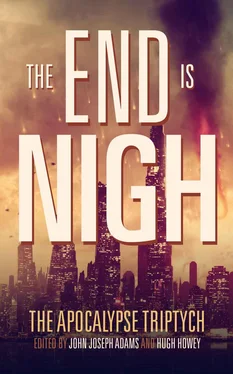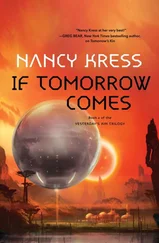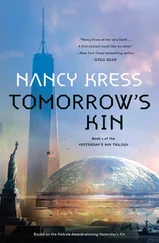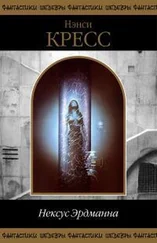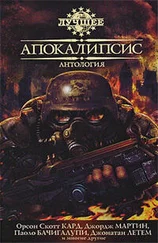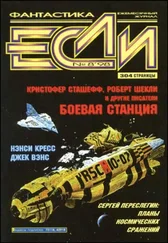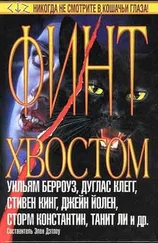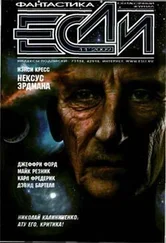Or maybe not. Maybe they’ll just be dead. Oh God , thinks Pea, where is your voice? Oh God, guide me .
“Why would you want to stay in this world?” she asks Robert quietly. “This world has collapsed. This world is broken.”
“Pah,” says Robert. “It’s collapsed because everybody stopped taking care of it. It collapsed because everybody’s been sitting around waiting to eat poison for twenty-four years.”
Pea stands there in the tense silence while time ticks by, and she feels thrilled and overwhelmed, disoriented and excited. She has thought these things before, in the dark spaces that in other people’s minds are filled by God’s word. The buildings, those remaining, tilting toward each other in the marshes like old dominoes. The broken elevators. The aluminum fixtures that used to be steel. Everybody just waiting. The world slowly running down.
Pea feels a butterfly fluttering around in the cold chamber of her chest. Its wings brush against the bars. She whispers to Robert.
“You don’t hear Him either.”
“Oh, I hear Him,” he says. He doesn’t look like a fat nervous kid anymore, not at all, not to Pea. “I hear Him. I just think He’s full of shit.”
• • • •
Dawn is approaching and Marie St. Clair has finished her appointed rounds. Everybody in these three buildings knows. Everybody is ready. Everybody has been ready for years.
GO HOME NOW AND WAIT.
She tightens her sash around her chest, her heart beating faster and faster as the sunrise approaches.
GO AND BE GLAD.
There is no question in her mind. That is perhaps the greatest thing, that is what makes her happy. No doubt and no question, no trouble and no worry, she simply knows what will happen next. The truth. The uncomplicated truth.
• • • •
BRING HER TO ME.
“More.”
BRING HER TO ME.
“I need to know more. Please. Please. I need to know more.”
Kenneth stands at the foot of the stairs in a furor of indecision. God will only say what He has said, what He keeps on saying, and His brevity is a kind of absence, the cruelest imaginable absence.
Does it mean what his wife insists, that they must allow the child to die, like everyone, and that she will be brought through? Or does it mean, as Kenneth fears, that if he trusts God he must trust Him like Abraham. He must trust Him all the way: Report his own daughter’s deafness, her defect, and abandon her. Allow her to be left behind so the process is not ruined for all the rest.
BRING HER TO ME.
He knows what is right. Time is running out.
Kenneth takes one deep breath and flings himself up the creaking stairs, three big steps at a time, as if over hurdles, as if slowing would make him stop—no, not as if , for he knows that indeed slowing down will make him stop. Kenneth hurls himself up the stairs and grabs the door handle of Pea’s room and throws it open, and he meets his wife coming out of their daughter’s room.
Annabel stares wildly at him. She is panting and shivering, and in her hand is the electric slicer, and it is on, humming, with red blood all along its vibrating edges.
I am too late , Kenneth thinks. Too late too late .
Annabel stares, the electric knife dancing in her palm, and at last her lips open and she says “Where is she? What have you done with her? Where is she?”
BRING HER TO ME, says the voice in Kenneth’s mind, and he can see it in the frozen mad look on her face, that she is hearing the same thing—the same, the same, the same—BRING HER TO ME.
He rushes past her. They search the room. They lift the mattress and throw it aside. They toss open the dresser drawers and paw wildly through. They crowbar open the closet and find it empty. They feel the heat of time, of the morning sun growing closer, of the dawn of the new and final day.
Kenneth and Annabel rush to the window and they look out and see nothing and then they keep looking and Annabel sees it first and then Kenneth does, too, or he thinks he does: two distant shadows, moving swiftly and getting smaller. Two shadows running so close beside each other they were almost one, slipping together into the narrow space between two towers, swallowed up by the buildings and disappearing into darkness.
• • • •
Robert laughs as they run. He finds, indeed, that he cannot stop laughing. Pea is running beside him, and they are not holding hands, but every once in a while his right hand jostles against her left, and that mere touch, skin against skin, sends electric shivers coursing through his body. It isn’t just that she’s a girl, not just that it’s Pea—it’s… it’s all of it, all of this wild chaotic joy. The jolt of triumph and liberation, the thrill of rebellion, the sheer power of life continuing on! In the morning will be the feast, the feast for everyone but them!
Light is beginning. The time is at hand. Robert looks at Pea, and he laughs, astonished. And she laughs back, astonished too. He watches her hair bounce on her back while they duck giggling through the alleyways, in search of what and where they do not yet know.
The voice speaks then, freezing the smile on Robert’s face, clouding his heart. It speaks in his mind, clear and cold like a steel cage lowering.
BRING HER TO ME.
BRING HER TO ME.
BRING HER TO ME.
ABOUT THE AUTHOR
Ben Winters is the winner of the Edgar Award for his novel The Last Policeman , which was also an Amazon.com Best Book of 2012. Other works of fiction include the middle-grade novel The Secret Life of Ms. Finkleman , an Edgar Award nominee; its sequel, The Mystery of the Missing Everything ; the psychological thriller Bedbugs ; and two parody novels, Sense and Sensibility and Sea Monsters (a New York Times best-seller), and Android Karenina . Ben has also written extensively for the stage and is a past fellow of the Dramatists Guild. His journalism has appeared in Slate, The Nation, The Chicago Reader , and many other publications. He lives in Indianapolis, Indiana, and at BenHWinters.com.
Gears whir; an escapement lets loose; wound springs explode a fraction of an inch, and a second hand lurches forward and slams to a stop. All these small violences erupt on John’s wrist as the world counts down its final moments, one second at a time.
Less than five minutes. Just a few minutes more, and they would’ve made it to the exit. They would’ve been on back roads all the way to the cabin. John stares at the dwindling time and silently curses the fender bender in Nebraska that set them back. He curses himself for not leaving yesterday or in the middle of the night. But so much to do. The world was about to end. There was so much to do.
His wife Barbara whispers a question, but she has become background noise—much like the unseen interstate traffic whooshing by up the embankment. Huddled on the armrest between them, their nine-year-old daughter Emily wants to know why they’re pulled off the road, says she doesn’t need to pee. A tractor trailer zooms past, air brakes rattling like a machine gun, a warning for everyone to keep their heads down.
John turns in the driver’s seat to survey the embankment. He has pulled off Interstate 80 and down the shoulder, but it doesn’t feel far enough. There aren’t any trees to hide behind. He tries to imagine what’s coming but can’t. He can’t allow himself to believe it. And yet here he is, cranking up the Explorer, ignoring the pleas from the fucking auto-drive to take over and manually steering down the grass toward the concrete piling of a large billboard. The sign high above promises cheap gas and cigarettes. Five minutes. Five minutes, and they’d have made it to the exit. So close.
Читать дальше
